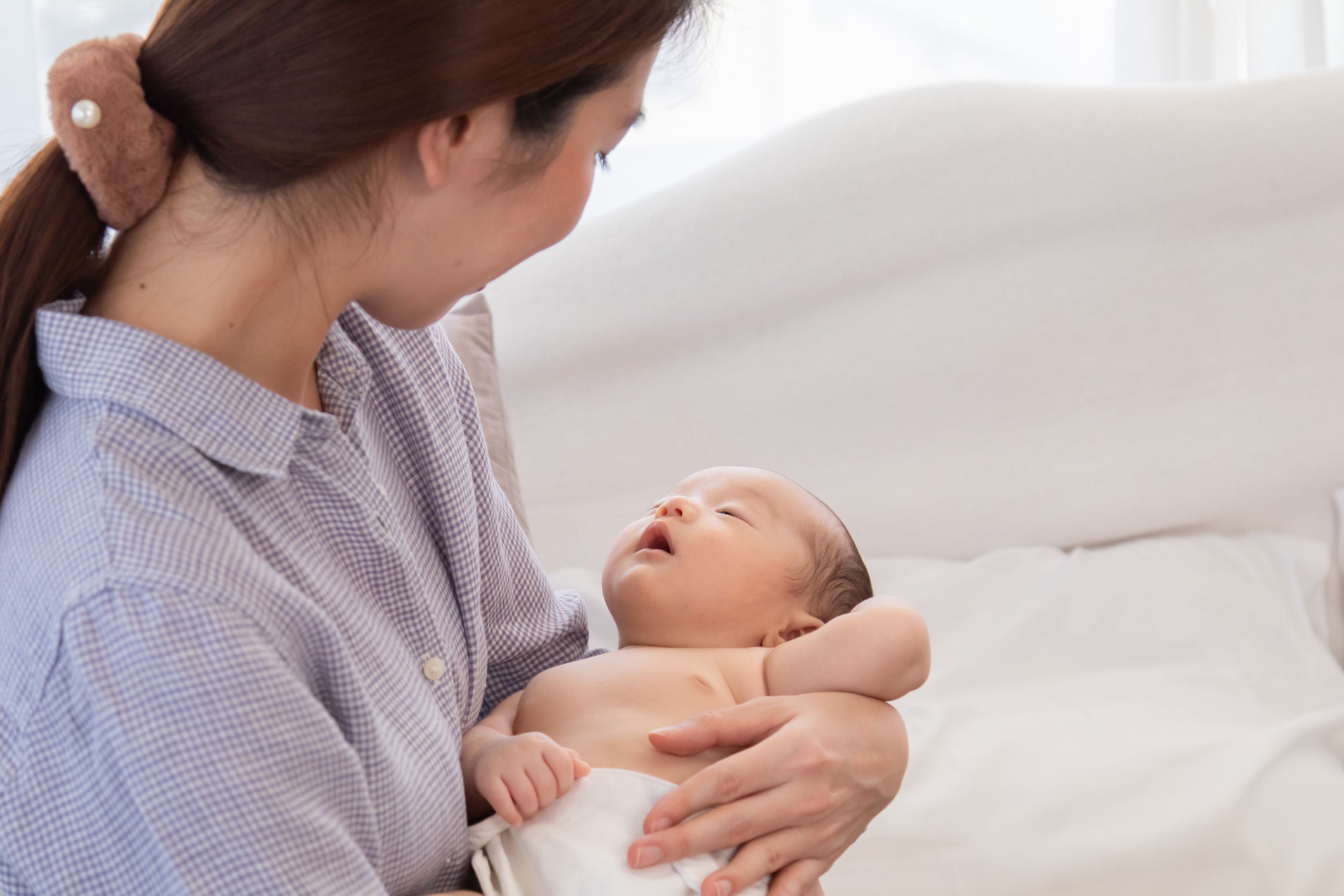I went to an NCT meet-up six weeks after giving birth – and forgot I had a baby
It was when I didn’t recognise my own child that I realised something was seriously wrong, writes Jenny Pagdin. This is how I got through what turned out to be postpartum psychosis


I knew there was something wrong when I went to an NCT meet-up six weeks after giving birth – and forgot I had a baby.
It was during one of our regular group walks that I suddenly buckled when we had to cross a railway track. A close friend had just died and I suddenly felt acutely terrified. I then looked around at the other mums – one of whom was carrying my baby – and completely blanked who he was or that I had given birth to him.
In that moment, I realised I was unwell.
One of the mums kindly took me to my GP (at my request) and stayed with me in the surgery waiting room, along with my child and her own. I remember little of that appointment, a decade on, but the doctor was kind and calm and diagnosed me with postpartum psychosis.
He wanted to see the baby afterwards “to check his weight gain” – perhaps, in retrospect, he had more concerns. I also recall him referring me to a mother and baby unit 100 miles from home – in my “high” state, I felt pleased and confident that things were moving.
Someone called my mother-in-law to be with me while my other half headed home from work. She held the baby because I didn’t trust myself to. By then, it felt like his cries were communicating to me in a kind of telepathic way. I could also smell incense, but my mother-in-law reassured me it was grease wafting up from a nearby chip shop.
I already had a dim awareness at the time that women could get very mentally unwell after giving birth. But it’s not the kind of thing many mothers look out for unless they have past experiences or a family connection – even though postpartum psychosis occurs in as many as 1 in 500 births.
I hadn’t realised how ill I was, or how dangerous it was. Yet just the previous day, at an indoor picnic, I had been telling my atheist family about “spiritual messages” from my dead auntie. I thought I was on the road to enlightenment (I’ve always had a spiritual/religious bent). I was so manic, it felt like the euphoria was filling my veins with helium. I had stopped sleeping.
The mother and baby unit (MBU) at the hospital was new, clean, homely, staffed by kind people and somehow gentler than mental health inpatient wards due to the babies’ presence. But at the time, I could only see the locked door, the barriers and staff lanyards. Detention, for me, was necessary. But it was also terrifying (at first).
Under close staff supervision and support, I learned to care for my baby – relearning how to bathe and dress him, to make up formula and sterilise bottles and, in time, to cook, cross the road and practise being at home again.
I left hospital six weeks after I arrived. It had been a torrid summer of heatwaves and dry thunderstorms, of parsley from the hospital garden and microwaved lasagna for breakfast. Under medication, my thoughts had come back down to earth (yet the inevitable depressive aftershocks clung to me for many years). I was heavily medicated and heavily ashamed.
I brought home in my bags a poem (written on a quieter hospital day), and several digital notes which planted the seeds for two books I would go on to write. Poetry helped me process my trauma and shame. It gave me a place to be something other than a “mental patient”, and it felt like a way of making lemonade out of life’s lemons.
But it also did far more than that. At the end of poetry readings, there is often someone who wants to talk through their own related experience – that communion is now one of the most valuable and important in my life.
Years later, I’m in a far healthier and happier place. But I’d be lying if I said the stigma has completely gone. I find the urge is still there to explain the many stresses of my pregnancy and the period postpartum, so as to justify and excuse my illness (this piece isn’t long enough for backstory).
Nevertheless, I still want to nurture a space so that others affected by psychosis and maternal mental ill health can speak up. I also want women in my position to know they’re not alone – I got so much help from the charity APP (Action on Postpartum Psychosis). They have benefited me and so many others.
Poetry saved me. In talking, we do the work of recovery.
Jenny Pagdin is a poet and the author of ‘The Snow Globe’ and ‘Caldbeck’






Join our commenting forum
Join thought-provoking conversations, follow other Independent readers and see their replies
Comments